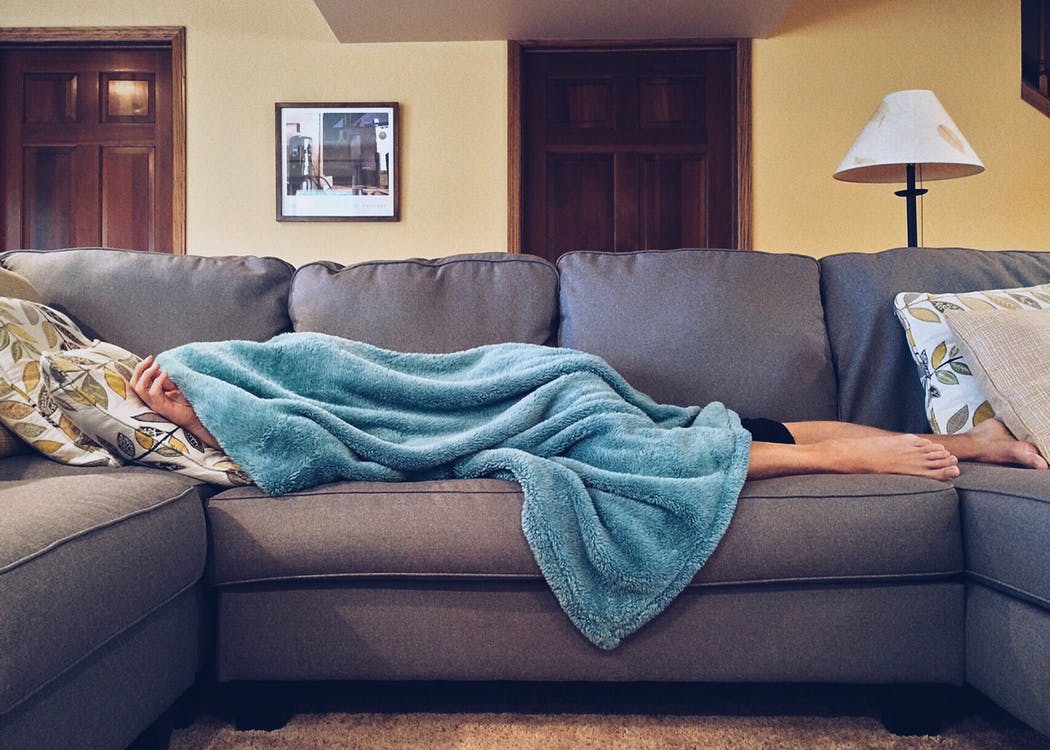
Insomnia is a sleep disorder which is said to affect as many as one in four people. While it’s often thought of as simply an inability to fall asleep, it can sometimes be a lot more complicated than that. It’s really important to consult a healthcare professional if you’re having trouble sleeping – they will be able to chat with you about the types of challenges you’re experiencing and what you can do to feel better.
Insomnia can present itself in many different ways and be the result of many different things and while this article will talk you through some of those factors, it is not intended to be a substitute for professional help.
Both the symptoms ‒ and the causes ‒ of insomnia can be complex.
Symptoms may include things like:
- Difficulty falling asleep
- Waking during the night and/or waking too early
- Feeling tired after a night’s sleep and experiencing daytime sleepiness
- Depression, anxiety, irritability
- Poor concentration
- Worrying about sleep
Some causes of insomnia have been linked to mental health and some to physical health.
Mental Health Factors
Sometimes insomnia is a stand-alone sleep disorder, but it can also be a symptom that’s occurring as a result of something else. From a mental health perspective, depression, anxiety, bipolar disorder and more are commonly associated with insomnia.
Physical Health Factors
There are many physical health factors that can impact your sleep, and some are directly known to contribute to insomnia. Sleep apnoea, chronic pain, allergies and some endocrine problems such as hyperthyroidism are sometimes considered to be causes. Neurological conditions such as Parkinson’s disease can also play a part in insomnia.
Medications
Some medications can have an impact on your sleep. These include antidepressants such as Prozac and Zoloft, anticonvulsants, steroids, amphetamines, and some common cold and flu medications to name a few.
Getting a good night’s sleep

There are a few things you might like to consider if you’re finding sleep to be a challenge. Lifestyle changes can sometimes help, so take a look at our 5 questions to get you started…
Are you having too much caffeine?
Caffeine is a stimulant. If you’re used to having a lot of coffee, you might want to think about reigning it in. Try reducing the amount you have, limiting your intake to mornings only, or going cold-turkey if that seems right for you. You could try it for a short period and see if it has an impact on your sleep.
Do you exercise regularly?
If anxiety and depression are a problem for you, studies have shown that regular exercise can be helpful. So making changes to incorporate exercise could in turn improve your experience of insomnia.
Are you taking time out from screens before bed?
Screens should be avoided for at least an hour before you plan to sleep, and that includes phones. Early studies are starting to show that exposure to blue LED lights can disrupt sleep patterns, so reducing your consumption before bedtime is widely accepted advice to make sure you’re protecting your slumber.
Do you know about aromatherapy?
Some aromas a widely recognised as being helpful in promoting relaxation. Lavender is a favourite for this, but you could also look in to spikenard vetiver, frankincense, myrrh, and clary sage.
Do you use meditation?
If your mental health is contributing to your insomnia, it may be well worth your while to try meditation. Regular meditation can help combat depression, so take a look at a class or even an app that can help you to incorporate meditation into your daily routine.
If sleep is something that is challenging for you, consult a health care professional. Persistent insomnia can contribute to mental and physical ill-health, so it’s worth talking to a professional about the types of help available to you.
There’s no need to suffer through it and feel alone – it’s common and it’s treatable, so if you reach out and connect you’re on your way to a better night’s sleep.
About Terri Bowman
Terri Bowman is the creator and CEO of Brain Wellness Spa™. She has developed a drug-free solution called Quantum Neuro Recoding (QNR) and for almost a decade has been successfully working to help people overcome mental illness and emotional problems.
For more information about the work that Terri is doing visit brainwellnessspa.com

